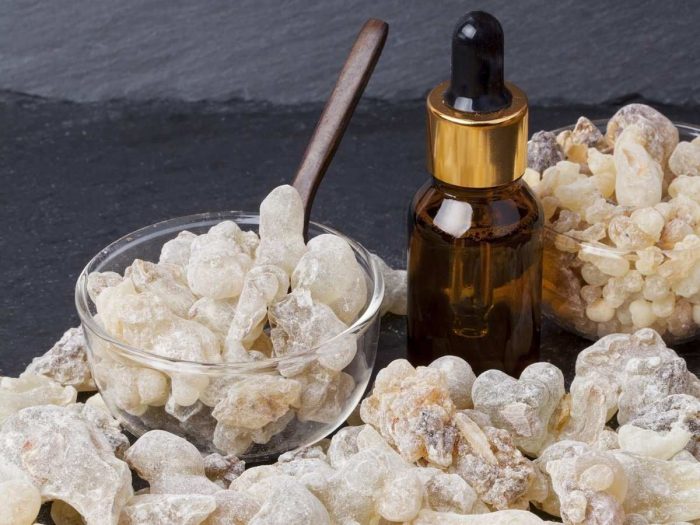Manuka Essential Oil is well known for its antimicrobial properties. It is harvested from the manuka tea tree oil, which is native to New Zealand. Manuka Essential Oil can be used to treat rheumatism, fever, skin disorders, and fungal infections effectively and naturally.
Manuka Essential Oil is a relatively new oil in the mainstream market, but it has been in use for centuries by the Maori of New Zealand, who are well aware of its health benefits and many uses. They used not just the oil, but also the sap, bark, and leaves because not only do they bear their own unique benefits, they are also effective against bacteria and infections. Manuka Essential Oil is very sustainable to produce, as it only requires the leaves, and the whole tree does not need to be cut in any way.
Manuka Essential Oil Benefits
Manuka Essential Oil, due to its potent anti-microbial, anti-fungal, anti-allergenic, and anti-inflammatory properties, has many useful applications that involve the neutralizing of bacteria and other unwelcome organisms in the body that cause a wide range of problems. Some of the benefits of Manuka Essential Oil include:
- Treatment of fungal infections
- Relief from rheumatism
- Relief from bites and stings
- Skin care
- Helps relieve allergies
- Dental hygiene
- Deodorant
- Hair care
- Relaxant
- Soothing burns and wounds
Much research has been performed on the effects and results of using Manuka Essential Oil. Studies have shown it to be effective in retarding the growth and spread of bacteria that cause candidiasis and staph infections, as well as E. coli. Further research is ongoing to see its effects on tougher organisms like viruses, particularly HSV, but there is enough proof of its bacteria-fighting capabilities.
Manuka Essential Oil Uses
- Manuka Essential Oil for Fungal Infections. Manuka Essential Oil is guaranteed effective in eliminating fungi that cause athlete’s foot. One way to use Manuka Essential Oil to treat feet fungi is to apply the oil directly on feet. Another method is to soak feet in warm water with a few drops of Manuka Essential Oil for half an hour everyday.
- Manuka Essential Oil for Rheumatism. It is widely known in New Zealand that the manuka tree has anti-inflammatory properties, whether it’s the leaves, bark, or oil. Rubbing Manuka Essential Oil on an aching joint or sore muscle can bring near-instant pain relief, or adding several drops into bath water can make a relaxing manuka bath to soothe your tired body.
- Manuka Essential Oil for Insect Bites. Rubbing a drop or two of Manuka Essential Oil onto an insect bite or sting will bring instant relief and reduce itching and swelling. Just be sure to remove any stingers left behind first before applying the oil.
- Manuka Essential Oil for Skin Care. Manuka Essential Oil is an effective cicatrisant. It encourages new cells to regenerate and grow, which makes it great to use on small scars due to acne or chickenpox. It also helps protect the skin from further infection thanks to its antibacterial properties.
- Manuka Essential Oil to Stop Allergies. Some allergic reactions can be calmed and reduced by the application of Manuka Essential Oil. Applying it to an allergy site on the skin can help stop itching and swelling from touching an allergen, while diffusing it can take care of inhaled allergens. This is especially effective for allergies caused by pollen, dust, or pet hair.
- Manuka Essential Oil for Dental Hygiene. A 2004 study on mouth bacteria concluded that Manuka Essential Oil can kill the most number and varieties of bacteria and was non-toxic in low concentrations. This means that Manuka Essential Oil can be effectively used as an antibacterial mouthwash to prevent plaque and gingivitis, as well as bad breath.
- Manuka Essential Oil as a Deodorant. Manuka Essential Oil kills several different kinds of harmful microorganisms, including ones that cause odors on the body and feet. Body odor is usually caused by bacteria, while that on the feet is caused by both bacteria and fungi. The oil can kill both of them, and washing the body or feet with a solution of Manuka Essential Oil and soapy water once or twice a day can help keep them away.
- Manuka Essential Oil for Hair Care. A natural, inexpensive remedy for stubborn dandruff is using Manuka Essential Oil on the hair. Dandruff is generally caused by lack of moisture on the scalp and is made worse by bacteria. Manuka Essential Oil not only helps the scalp retain moisture, it also protects it from bacteria. Some say that this is even more effective than commercially available anti-dandruff shampoo.
- Manuka Essential Oil as a Relaxant. Filling a room with the vapor of Manuka Essential Oil can help fight stress, anxiety, depression, and nervousness. This is especially useful for those who need to focus at work or for those whose blood pressures shoot up at the smallest amount of stress or anxiety.
- Manuka Essential Oil for Small Burns and Wounds. Naturally, since Manuka Essential Oil is a very good antiseptic, it’s great to use on superficial wounds and burns. It can either be applied directly after washing, or diluted with carrier oil, to bring instant relief and protection from bacteria and infections.
Manuka Essential Oil Side Effects
Manuka Essential Oil is generally non-toxic and does not cause any irritations. However, as a safety precaution, always consult with your doctor first if you are not sure about using any essential oil, especially if you plan to take it orally. As well, take care to not use excessive amounts of Manuka Essential Oil, whether topically or otherwise, unless prescribed.
How to Use Manuka Essential Oil
Using Manuka Essential Oil on the skin usually requires dilution, either in water or carrier oil. It can either be made into an ointment or mixed into a bath. For instance, a mixture of 3 or 4 drops of Manuka Essential Oil and some carrier oil can be used as a massage oil, or applied on allergy rashes; for a full-body treatment, 8-10 drops into a bathtub is more ideal. 3 or 4 drops mixed with a glass of water can be used as an after-brush mouthwash.
There are some instances where Manuka Essential Oil can be used without dilution, as with insect bites or to treat athlete’s foot. It can also be used this way to treat dandruff, although it’s advisable to mix it with your shampoo instead for easier application.
How to Make Manuka Essential Oil
Manuka Essential Oil is difficult to make in significant quantities, especially outside New Zealand, due to the scarceness of the source. One thousand kilograms of manuka leaves is required to produce just two to three liters of pure Manuka Essential Oil. The leaves are stuffed into stainless steel bins to prepare for the extraction of oil. The oil is derived through steam distillation, a process that uses a continuous current of steam to extract a liquid. It is a high-energy process that further confines the production into commercial establishments. The oil is then filtered for impurities one final time, and bottled in airtight containers.
Manuka Essential Oil Recipe
Thanks to its antibacterial properties, Manuka Essential Oil can be used to treat acne and remove scars left by it. Here is an effective recipe that you should keep around the house if you suffer from acne:
4 drops of Manuka Essential Oil
3 drops of frankincense
3 drops of myrrh
3 drops of cistus essential oil
30ml carrier oil of your choice
Apply the mixture on problem areas in the face after washing, at night before going to bed. Not only will this kill bacteria that cause acne, it will also soothe the skin and moisturize it.
Where to Buy Manuka Essential Oil
Manuka Essential Oil is readily available at most beauty shops and on the Internet, particularly on Amazon and on the websites of the brands that manufacture the oil. The recommended brands are Eden’s Garden, Plant Therapy, Young Living Essential Oils, Mystic Moments, Rocky Mountain Oils, and Hill County Manuka.
More Information on Manuka Essential Oil
Manuka Essential Oil is generally safe for use topically, but if undiluted can cause dry skin. It’s best to dilute in water or carrier oil for topical use, especially in warm climates.
The safety of ingesting Manuka Essential Oil has not been documented. While it is non-toxic, it was only used in the mouth and not swallowed, so the effects of Manuka Essential Oil inside the stomach are currently unknown.
Manuka Essential Oil FAQs
Q: Does manuka honey have the same antimicrobial properties of Manuka Essential Oil?
A: Technically it does, because any type of honey has antimicrobial power. However, the extent of uniqueness of manuka honey to other honeys is debatable. Manuka Essential Oil, however, has scientifically backed and rigorously tested effects and benefits.
Q: Which is better, Manuka Essential Oil or tea tree oil?
A: While they come from the same country, Manuka Essential Oil is reportedly up 33 times more effective than tea tree oil in killing bacteria.
Q: How often can I apply Manuka Essential Oil on my skin?
A: Once a day (for example as acne treatment) is enough for Manuka Essential Oil.
Q: What is the shelf life of Manuka Essential Oil?
A: Manuka Essential Oil has a shelf life of 6 to 7 years.
Q: Does Manuka Essential Oil interact with medicine?
A: Currently, there is no known interaction between Manuka Essential Oil and medicine.














